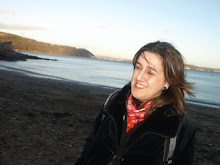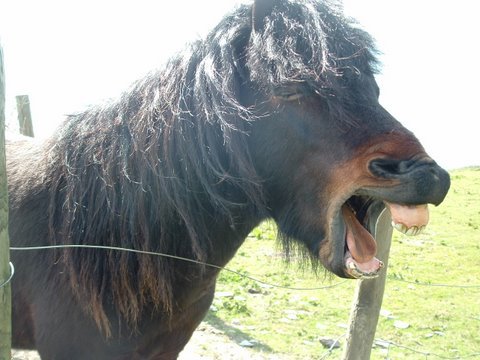Sarah Fordham is a poet with a wealth of experience in writing, performing and collaborating with other artists. She freelanced in publishing for many years, working for Clio Press, MacMillian and Orion. Sarah runs creative writing workshops and is a popular seminar and conference speaker. Sarah is one of the founding members of the Sublime vision.
What is it that most excites you as a Christian in the arts at the moment?
Before I answer that question, I would want to say that being involved in the arts is not an easy thing. People may look at the end work and think 'wow, that's so deep' or 'so beautiful', but there is often a lot of pain, as well as joy, that goes into creating. I also think that an artist who is a Christian has certain challenges regarding church. The way that I have come to understand this is as a clash of cultures. Church culture is a very particular thing, often with a strong emphasis on just musical gifts, and the difficulty comes because the Christian artist stands very close to the prevailing culture. I see the clash as a postmodern/modern one. The postmodern mindset, like the artistic one, is subjective and intuitive, whilst the modern one is more objective and rational. I am not saying that I can't be objective and rational, but not in terms of my being an artist. I know many artists who find it hard to fit and find a place within their church and struggle with the form that church meetings take. Now, I believe that God is well able to speak through the subject(ive) and intuitive, as well as the object(ive) and rational, and that because He has created both, we need both. Our artists, under the right leadership and discipleship, could be a great help in achieving the balance we desperately need if the church is not to retreat into modernism and be able to connect with postmodern people coming through its doors for the first time
Now there is a shift afoot. Christian artists have often been in a difficult place, not understood by the church or the world. But now the general openness to spirituality, along with the desire of churches to be more 'culturally relevant', means that artists are perhaps being seen as potential bridge people between culture and church. I went to a lecture by Tom Wright a few years ago and he expressed it like this: the Christian artist is uniquely placed to stand between the two extremes in the secular art world of brutalism and sentimentality. The reason for this is that they can be both real about the reality of evil and demonstrate tangible eschatological hope. There is a great tension, he said, in holding this position between the Kingdom come and still coming. I guess this is true for all Christians, but the artistic gift, particularly when it is being prophetic, can bring a great deal of pressure as its exercise puts the artist directly in touch with the spiritual world. When this is the case the Christian artist needs prayer and support just like a frontline minister, intercessor or a missionary. The thing that would make me the most excited in the world is more recognition of this, as well as an understanding of how Christian artists are uniquely placed to help the church make the transition from modern to postmodern, in a way that would bring new life and energy within its walls, as well as help capture the imagination of those coming in for the first time.
Who most encouraged you to pursue your calling in the arts?
I would say that I have been sustained by the prayers of leaders and friends who affirm what I do because they affirm me, and that's not specifically to do with the arts. Church leaders who have sublimated their artistic gifts to do ministry I find very humbling and inspirational. Pope John Paul II was an actor and writer of some renown before he entered the priesthood. Rowan Williams is a poet. On a personal level, Faith Forster, who leads my church Ichthus with her husband Roger, is a very gifted poet and writer, and both have a deep appreciation of the arts. Both she and Roger have been great examples of leaders who encourage everyone to pursue their God-given calling in faith, whatever that may be. And then there are fellow-artists, like my brother Jonathan and my closest poetry collaborator, the Catholic Bard Sarah de Nordwall, who stand with me as peers, and that is an important aspect as well.
What were the main inspirations behind "The Cool of the Day" poems?
Each poem has a specific inspiration so it is hard to make a general statement, except to say that interacting with the Word of God has been incredibly important in my formation as a Christian poet. In terms of the title, The Cool of the Day, and the choice of poems for the collection, it was the idea to use the biblical narrative of the fall, redemption, incarnation, resurrection and homecoming in order to tell my own story that turned out to be the key in bringing out the book.
What advice would you give to someone wanting to get into writing poetry?
My main advice for those wanting to write poetry is to read it and then practice your craft. It is all too easy to be swept along on a tide of emotion when writing and not to go back over it, reflect on it, make adjustments. It is good as well to understand your motivation to write. I tell anyone starting out to read George Orwell's essays Why I Write and Politics of the English Language. Then go find your peers in that arena, whether in or out of the church. This was my advice when I was approached by a very bright 17 year old. She dutifully went to the open mic nights in the poetry café in
If you have a gift I would say, use it, develop it, find contexts for it, ask for and listen to feedback. Ask God to give you wisdom and understanding to work through it, ask others to pray for you, and if you don't have a community, then pray for one. Perhaps most importantly trust it - it says in the bible that your gift makes room for you (Prov 18:16). Self-consciousness is the enemy of real art, and the more we can be free of it, the more God is free to work through whatever gift He has given us to bring more Beauty, Truth and Goodness into His world.


No comments:
Post a Comment